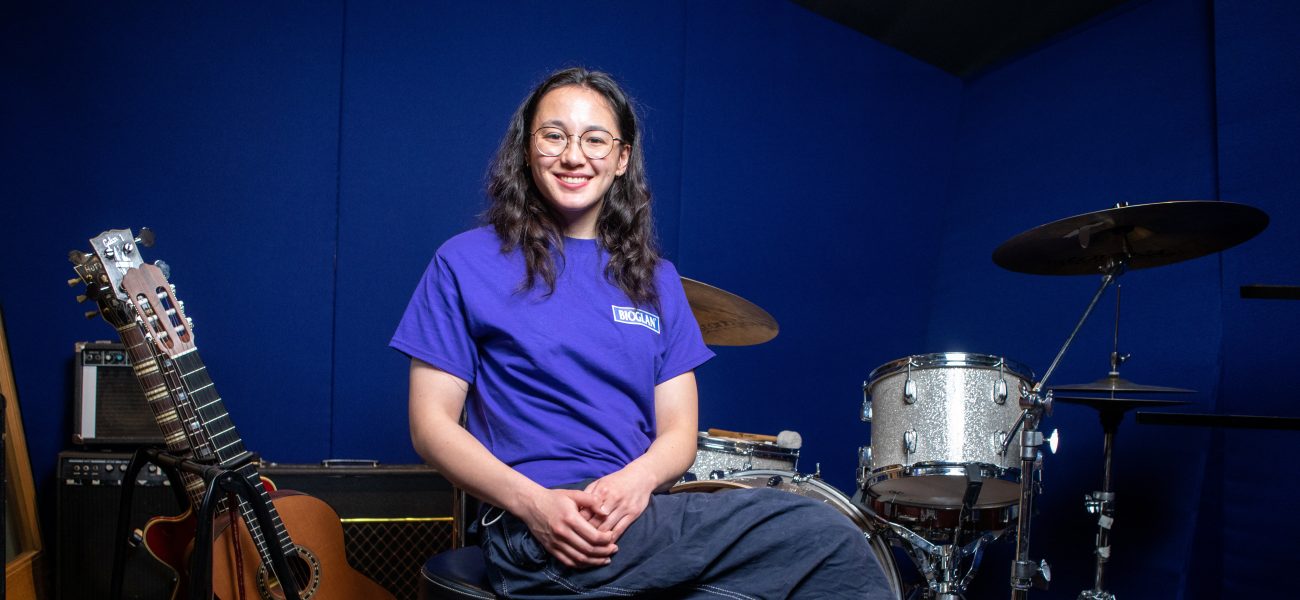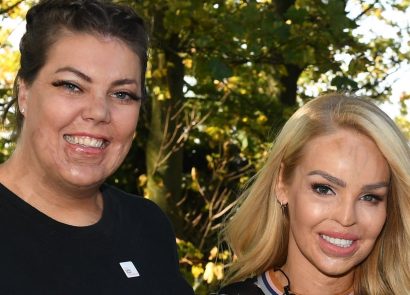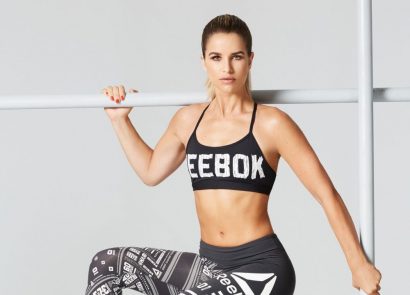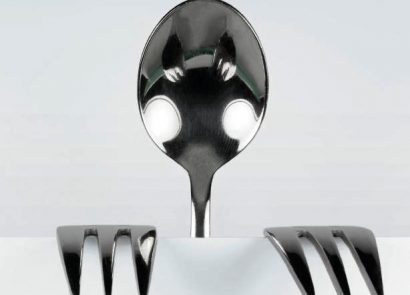Paralympic swimmer Alice Tai certainly knows how to keep herself busy. The 24-year-old is a paralympic gold medallist, recent neuroscience graduate and – to top it off – a music-loving guitar player. And yet, she’s quick to proclaim the benefits of finding balance.
That’s why she’s partnered with supplement brand Bioglan for their second series ‘In Bioglan Balance’ alongside influencer Mat Carter to show others how she unwinds and achieves balance in her life.
For those who might not know Alice’s story, she’s lived with bilateral talipes (also known as clubfoot) since birth, and in 2022 she had her right leg amputated below the knee. In the past decade she’s competed at the Paralympic Games, World Championships, European Championships and Commonwealth Games, won more than 20 medals (including 16 golds) and set multiple world records.
Read on for more about how she’s achieved so much, why swimming is so important to her and how she finds balance in her life…
Can you tell us a bit about your journey to becoming a paralympic swimmer?
I started swimming for two reasons. The first one is that I grew up by the sea, around the Bournemouth area, and my parents didn’t want us to be near the water unless we were safe. Neither of my parents swim, so if we’d gotten into trouble on the water, they’d be useless.
My personal situation also influenced my swimming a lot. I had 14 major operations before I was 12 and I couldn’t weight bear for a lot of time around this. Swimming was really the only way I could stay fit and support myself, so I got in the pool for hydrotherapy.
It was actually our babysitter who suggested that maybe my brother and I join a swimming club, so we did, and a couple of years later I got classified to be a part of para-swimming.
It really just snowballed from there. I went from competing at my first ever para competition, which was a regional one, to being told I needed to go to Nationals and then being talent scouted. I had surgery the year after, so I was out of the circuit for that year, but after that I came straight back. A year later, I was at my first Europeans, then World Champs and then the Paralympics with a gold medal.
Was swimming always easy for you?
I remember feeling a lot more freedom in the water when I was younger so it’s something that I found peaceful while growing up. On land, I was always at a disadvantage but in the pool, I felt like I was more on par with everyone.
But I don’t think I was always great at swimming. I’ve been told that when I was really young, perhaps during one of my first times in the pool, I was holding onto a float and trying to kick but I wasn’t moving my right leg at all because I’d just had surgery. And so my left leg was going for it, but I was just flailing around. There’s been a lot of improvement since then!
What do you love about swimming?
The big thing for me is seeing the impact my swimming has on other people with disabilities. I think it’s super important for everyone in parasports to really put themselves out there and be confident and show others what can be possible. Ellie Simmonds is a great example of what this can do. She kind of blew up around London 2012, and then the next two years at the National Championships, the influx of those with dwarfism in para-swimming was huge.
Then, more recently, there have been more people with club feet joining, which is amazing. You can see the direct correlation – someone with a disability will win a medal, and then more people with that disability will come onto the scene. Seeing that is really inspiring.
How did it feel joining parasports?
When I joined parasport, the sense of community was huge for me. It was the first time in my life that I walked into an environment where everyone had similar experiences, everyone had a disability. I really found a lot of peace and acceptance within that group of people and it’s such an amazing feeling to finally be with people who fully accept and understand your circumstances. I think that’s a huge thing that really helped me in life in general, swimming aside.
Do you sometimes struggle with the pressure of both competitive swimming, and also representing those with disabilities?
I think there was a point where I struggled with the whole goal of winning a gold medal and constantly breaking a record. And I also did struggle with people finding inspiration in me. I couldn’t understand why they did because I didn’t feel confident myself.
As I’ve got older though, and I’ve received more messages from people saying they have the same disability as me, my perspective has changed a bit, and actually hearing people say that I’ve inspired them, has inspired me too. It’s like a chain reaction of people with disabilities starting to feel more confident about themselves.
What’s your fitness routine like as a paralympic swimmer?
There are a lot of early morning swim sessions! I normally do nine to 10 swimming sessions a week. They are usually two hours, sometimes a little bit less, sometimes a little bit more. And we only have Sunday off, unless we’re racing, in which case, there’s not a day off. Between these swimming sessions, there’ll be gym sessions too. It’s quite intense to be honest. And I was I was at uni full time until just over a month ago!
That’s pretty full on! How do you maintain a sense of balance and unwind?
I like having things outside of swimming to do and music is a big part of my life – I really reconnected with it in the last few years because I found swimming could get a bit overwhelming. I mean, I love it but it does get a bit a bit much sometimes, and I need to go and decompress.
Finding that balance is really important for me. I like expressing myself creatively so if I’ve had a rough week or a difficult session, I find writing a piece of music really helps offload that. It’s been a nice addition to the hecticness of swimming and I love that there’s no pressure on it.
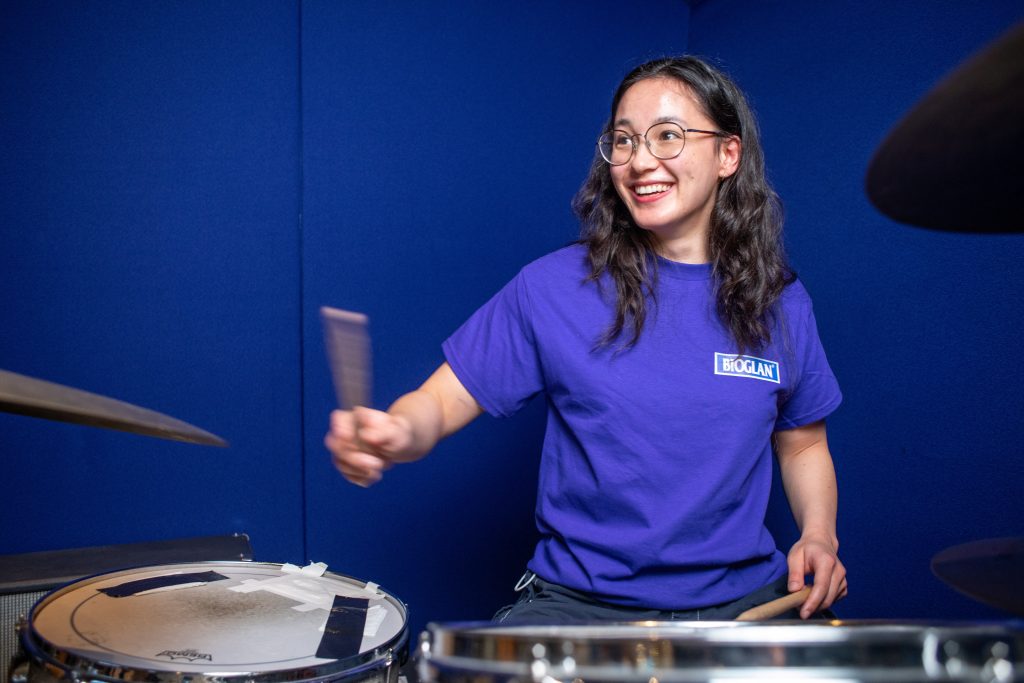
Do you find that you have a good sense of balance with your health and nutrition too?
I found I struggled a lot with nutrition when I first became an athlete. I was very strict with myself – I really wanted to do everything right because I wanted to go and get as many medals as possible and be the best athlete I could be. But I found that really draining, and I had quite disordered eating because of it. So I found that learning about my own body has been super important. As long as I’m getting the right things in – if I have enough carbs, protein and veg and fruit – then I can kind of give myself leeway to have whatever I want on top of that. So if I want to go for pizza, if I know that the other two meals I’ve had in the day are nutritionally well balanced, then it’s not going to have a huge impact. Obviously, if I eat pizza every day for every meal, that’s a different story.
It’s all about balance – and having that balance with supplements is also super important, and that’s why I’m working with Bioglan at the moment. For me, supplements have helped me give my body more of what it needs. I personally like supplements that help support connective tissue, bone health, and take a holistic sort of approach to your body. One that I’ve been really liking is active curcumin, which supports connective tissue and bone health.
So, what’s next on the swimming front?
The Paralympics in Paris is my next main goal. I’m coming back with vengeance after having missed Tokyo!
Paralympic swimmer Alice Tai has partnered with supplement brand Bioglan for their second series ‘In Bioglan Balance’ alongside influencer Mat Carter to show how she finds balance in her busy life. To watch the series, visit @bioglansupplements on Instagram.









